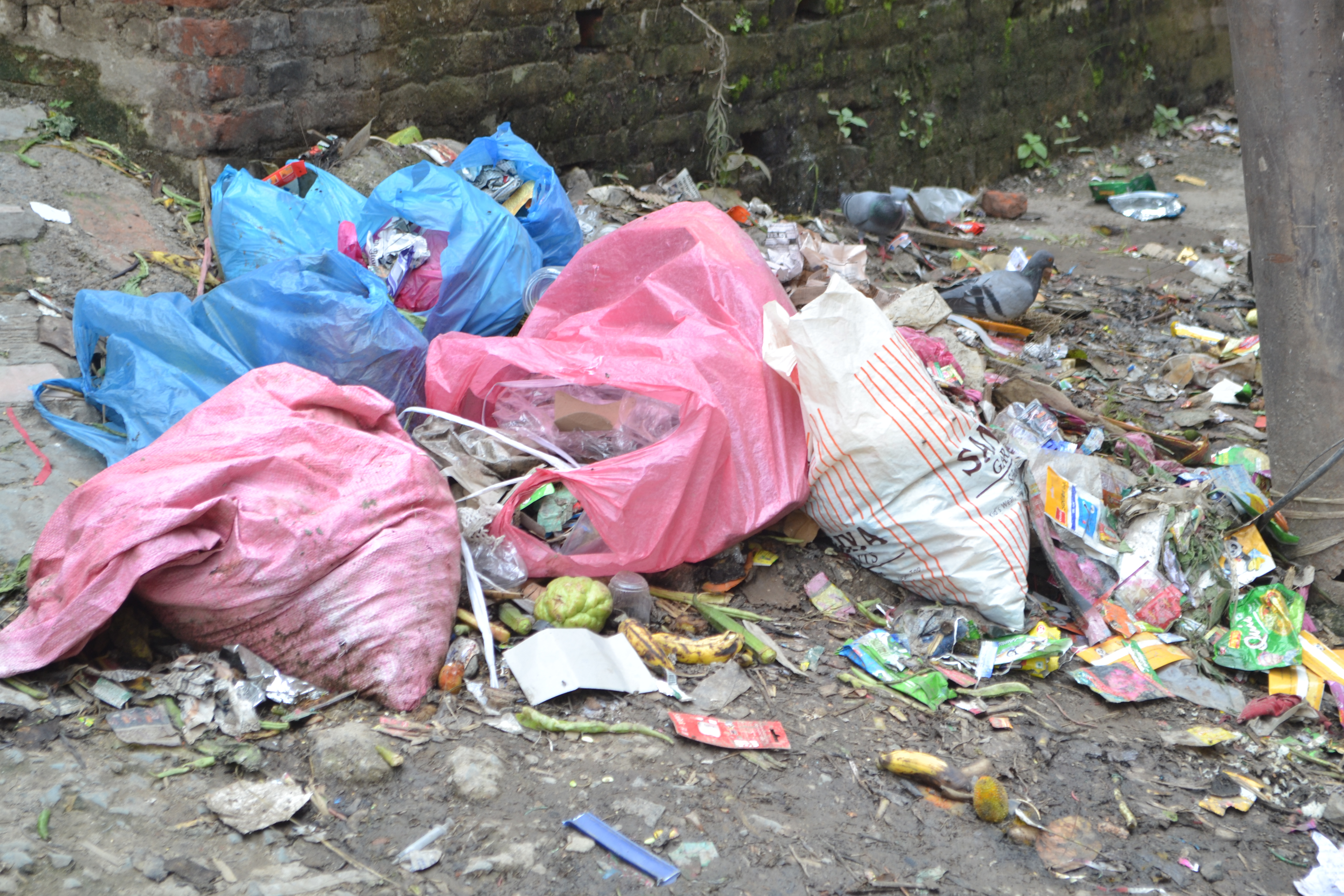Shortage of alternative bag bugs customers and businessmen
Although the government imposed a ban on the manufacture, sale and use of plastic bags a few months ago, both businessmen and shoppers have found it difficult to stop using these non-biodegradable bags, which have become intrinsic to buying and selling process over the past several decades.
Some shopkeepers have started providing cloth bags and thicker plastic bags above 40 microns to customers. But jute, cloth and paper bags are in short supply and relatively expensive. The jute and cloth bags cost above Rs 30 per piece while thicker plastic bags cost Rs 200-300 per kg.
Hari Sharan, 35, a shopkeeper at Thankot, said, “The government ban on the use of plastic bags has cut our profits.” Sharan also has a problem with customers as they don’t bring bags with them.
“Use of thick plastic bags is rampant these days and the government seems to have failed to provide an alternative. Ban alone will not help discourage the use of plastic bags. The government has to monitor the market regularly and also provide an alternative,” he said.
Butchers, fruit and vegetable vendors and dairy product sellers have been the hardest hit.
“I have been giving plastic bags to customers to carry chicken meat. So far, I have found no customer who has supported the government ban by bringing his own bags,” said Deepa Shahi, 28, butcher at Kalimati.
Some of the shopkeepers have started using paper to package dry food instead of providing expensive thick plastic bags to customers.
Customers have the choice of bringing their own bags or buying one, but they are not habituated to new conditions. Moreover, they do not prefer buying cloth bags as they are expensive and also in short supply.
Rima Gurung, 23, of Ghattekulo, said, “I don’t see any cloth or jute bags in the market. I would have bought one, but I also do not see other people carrying such bags.”






